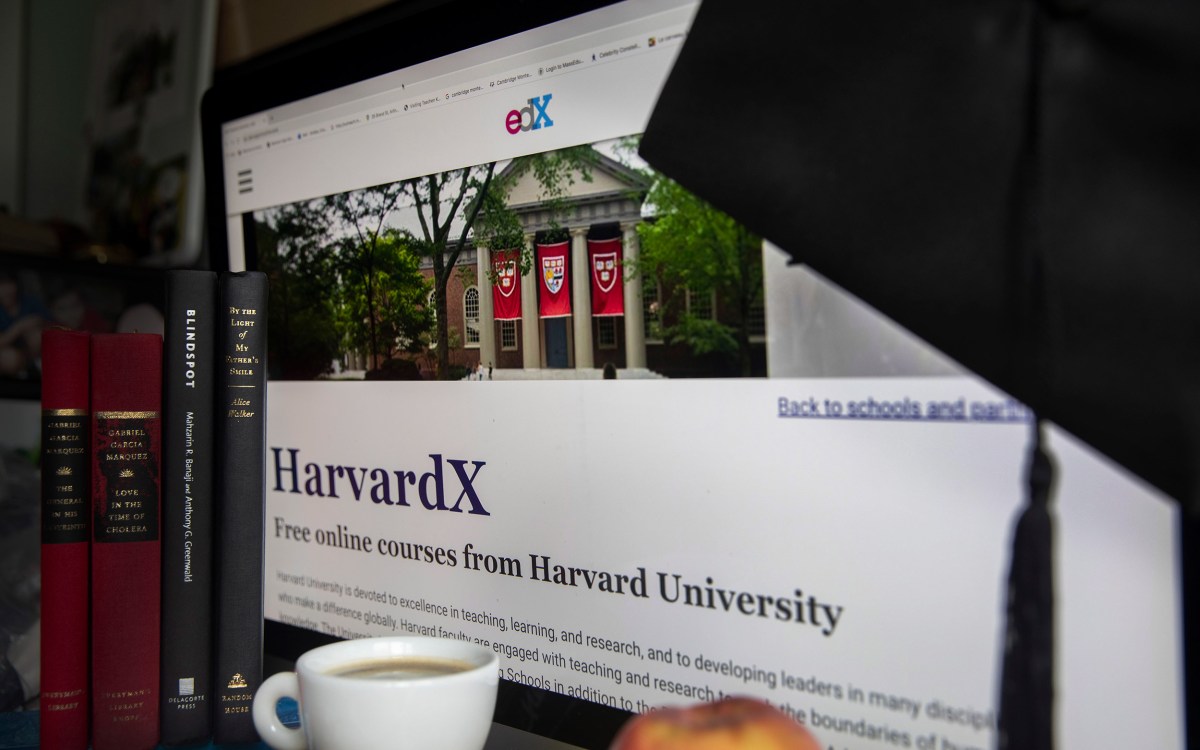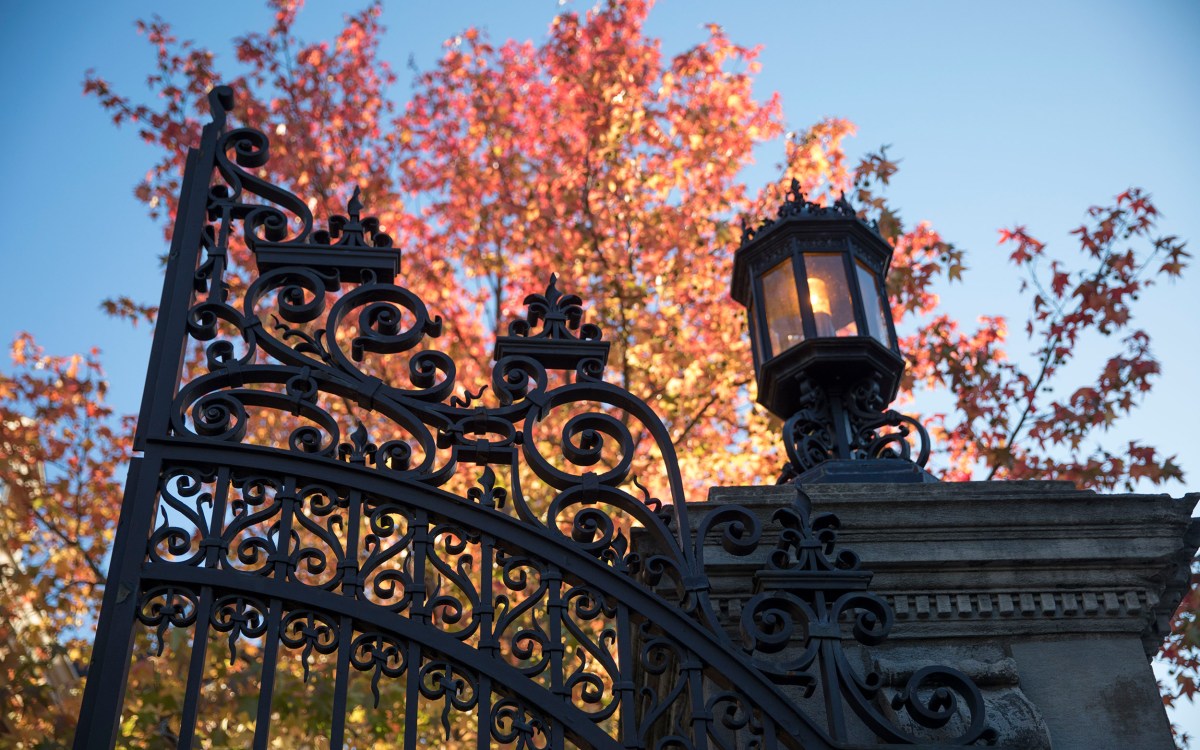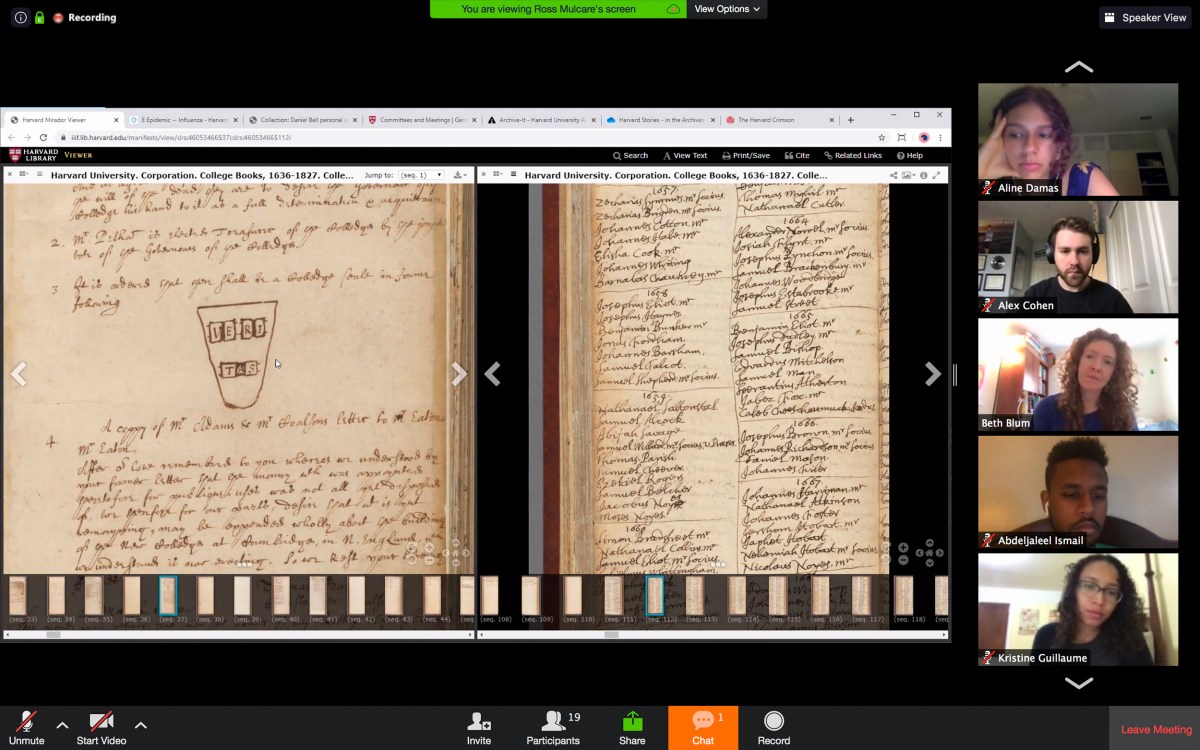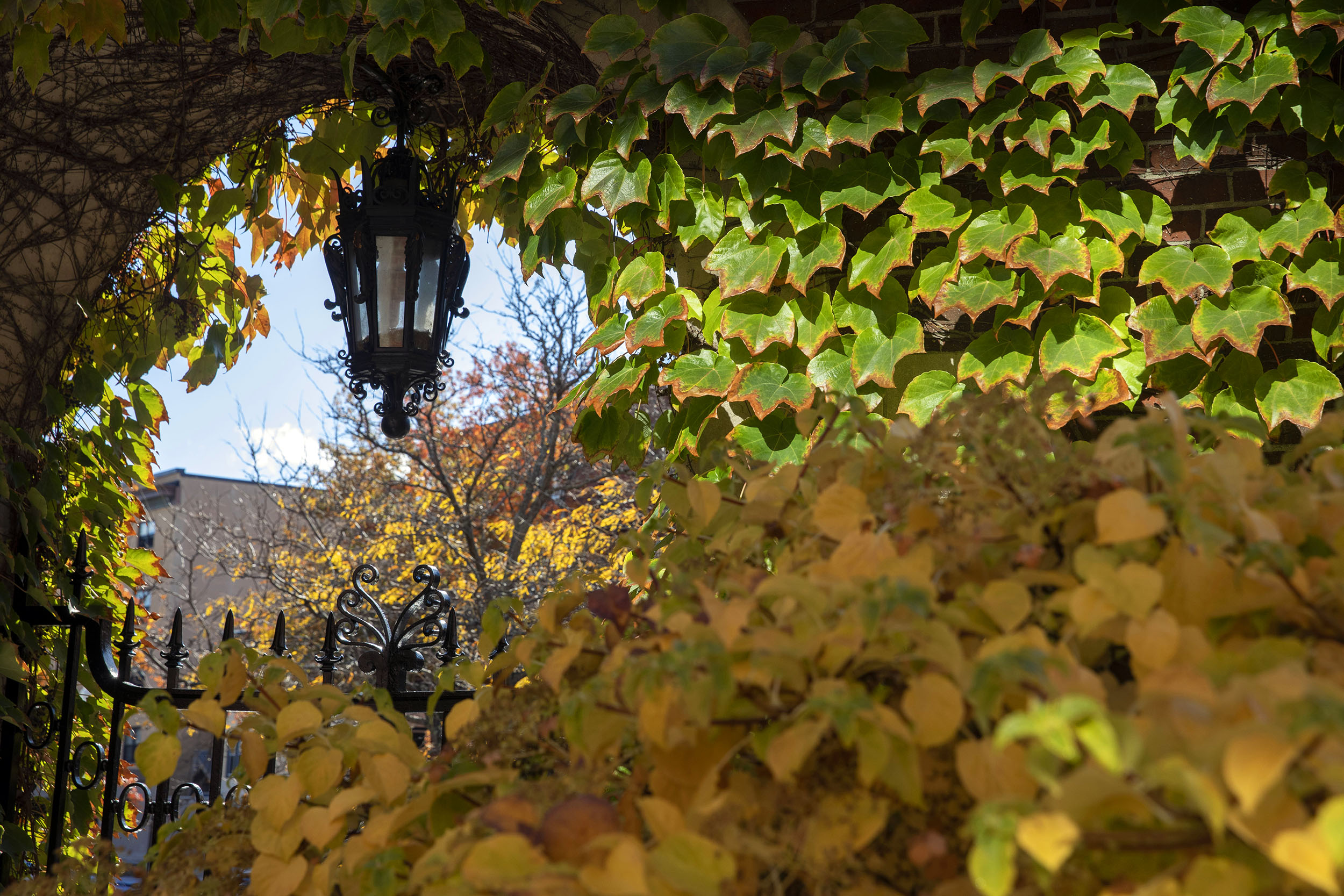
Kris Snibbe/Harvard file photo
Gearing up for a consequential fall
Faculty shape online classes to engage with COVID, race reckoning, election
This story is part of a series about the ways in which faculty are innovating and planning for fall classes online.
Musa Syeed views having the students in his film course geographically scattered as a unique opportunity. His plan for this fall is to study a community-engaged approach to documentary filmmaking, and each of the 12 undergrads enrolled will produce a short film from wherever they are living. Video will be shot on personal smartphones, but supplemented by snap-on lenses, cinema video apps, and external audio recorders — some of which will be mailed to students.
“Remote learning actually presents a real opportunity for a community-based film workshop, since students can now document communities far beyond campus — communities they’ve likely grown up in, or spent significant time in,” said the Briggs-Copeland Lecturer in English, who will lead the workshop “Get Real: The Art of Community-Based Film.” “I’m hoping we’ll not only see a real breadth of communities represented, but also a real depth in exploring them as students bring their existing experience and relationships into filmmaking.”
Syeed is but one of dozens of faculty members pivoting to a confluence of events that will undeniably reshape the future, profoundly and in unforeseeable ways. The COVID-19 pandemic, the reckoning over American racism, and the high-stakes presidential election will drive much of the conversation and the curriculum in various ways in the upcoming academic year. With summer online training and ambitious rethinking of coursework, professors are finding ways to ensure that they’re taking fullest advantage of the medium and the message.
Matthew Lee will lead a course to both reflect on injustices and to act to effect change.
M. Davidson-Schapiro Photography
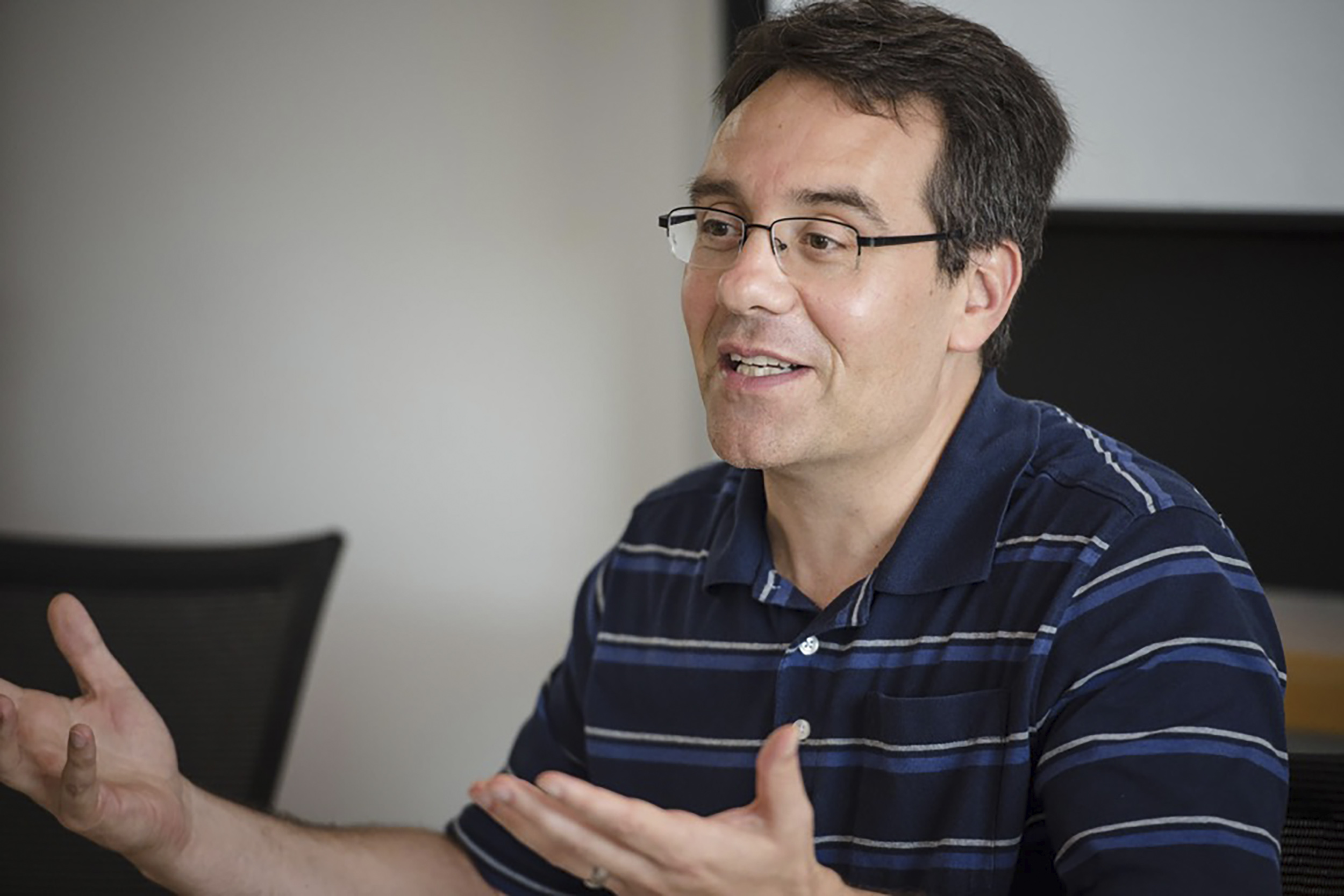
“The process of reimagining my course in our new virtual context has expanded my thinking about how to create the conditions that best support students’ personal growth and community impact,” said lecturer Matthew Lee, who will teach the sociology course “Crime, Justice, and Healing.” Students will reflect on present inequities, such as examples from the Black Lives Matter movement, through a sociological lens. Lee hopes the Zoom classroom will be a space full of vigorous conversations and ideas that lead to action. “I have given much more thought to how I can offer a contemplative educational process this fall that affirms the inherent dignity of all students, helps us be more aware of ongoing suffering and more present to the uncomfortable emotions that we and others may experience, and to use these experiences as a source of motivation to take beneficial action.”
Anne Harrington, the Franklin L. Ford Professor of the History of Science, will focus on the evolution of psychiatric care in her course “Mental Health Matters: Recurring Themes and Unfinished Business.” The class’ inquiry will be shaped by conversations with frontline clinicians, student groups, and creative projects through the semester.
“The issues raised by this course could not be more timely. Both the pandemic and the national reckoning with racism have, in different ways, put a new spotlight on concerns about mental health,” said Harrington. “They have made longstanding inequities in our society more visible, revealed the limitations of many of our social institutions of care, and challenged us to listen to voices and stories that have been historically overlooked.”
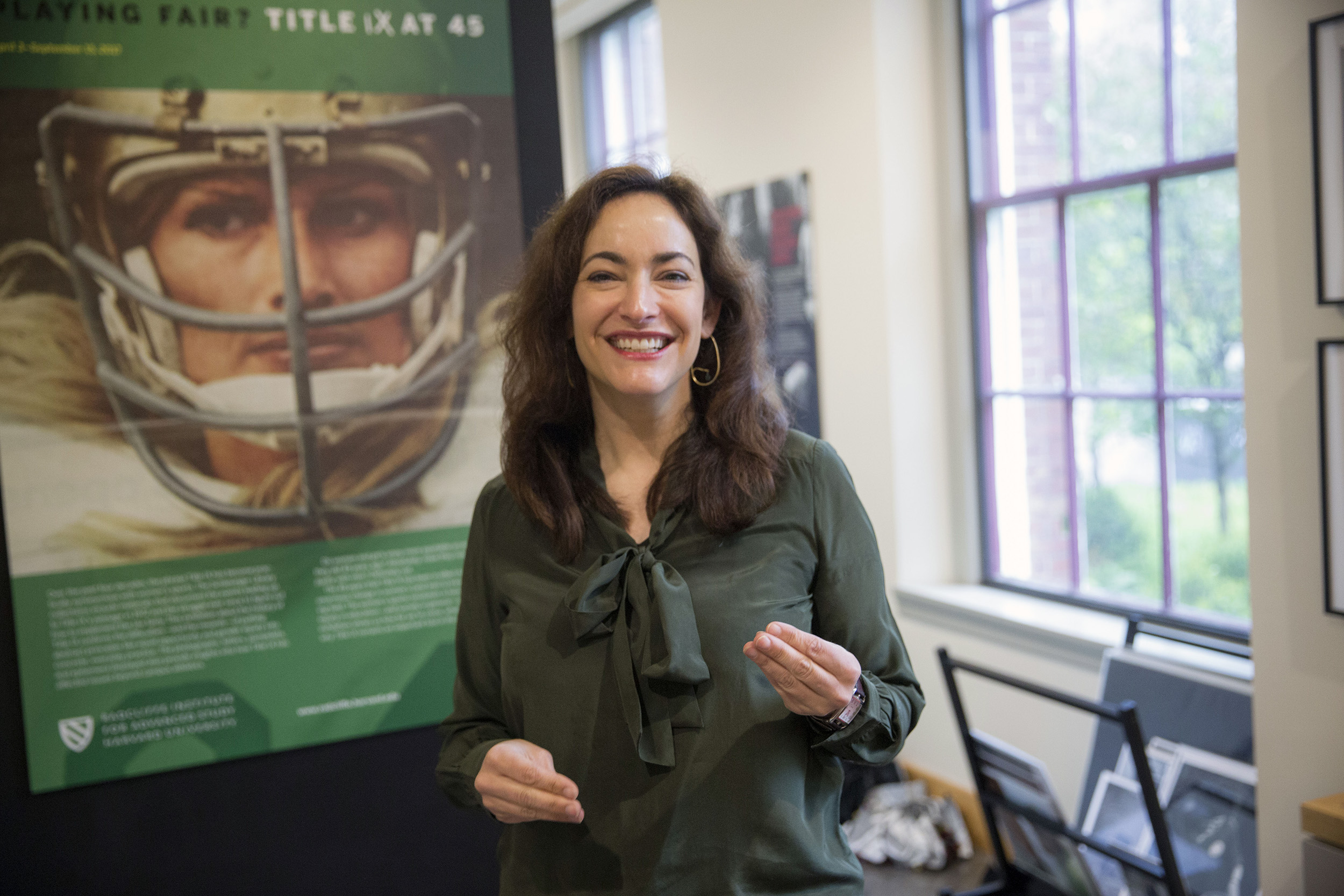
Phyllis Thompson’s new course will explore the evolution of domesticity.
Kris Snibbe/Harvard file photo
In studies of women, gender, and sexuality, lecturer Phyllis Thompson is preparing “Domestic Witness: ‘At Home’ for Better or Worse,” which will describe the history of the home and its intersections with matters of race, gender, class, and sexuality. Using knowledge from her research in American domesticity, Thompson will provide space for students to understand how aspects of COVID-19 are a response to the history of the “home” as a culturally specific construct.
“This has been a period in which many of us have spent unprecedented times in our homes, altering our experiences of domestic spaces and reinventing our routines,” Thompson said. “Many people have found themselves thinking about domesticity in newly focused ways — whether because divisions of household labor are altered or exposed, or because the habits that sustained us are unavailable or newly irrelevant, or because new skills or undertakings are providing surprising satisfactions. I’m looking forward to working through these issues with my students as they unfold nationally, in real time.”
Many introductory courses will use the pandemic as a means of applying learned concepts. In the course “Computing for Science and Engineering,” Efthimios Kaxiras, the John Hasbrouck Van Vleck Professor of Pure and Applied Physics, will introduce students to computational tools and their applications to financial markets, physics, engineering, and COVID-19. By teaching students how to mathematically model the pandemic, the course may help them better understand the conditions under which we currently live.
Though the coronavirus is in the forefront of many minds, Sheila Jasanoff, the Pforzheimer Professor of Science and Technology Studies at Harvard Kennedy School, will marry considerations about the current climate crisis and the upcoming presidential election in her course “Environmental Politics.” Through four group research projects aligned with the four modules of the course, students will discuss climate change and environmental protection while learning how politics influence these growing problems.
“What an exciting moment to be exchanging with each other, to be in this together.”
Ingrid Katz
“This semester includes a national presidential election, which raises the question of what environmental politics the United States will follow starting in January 2021,” said Jasanoff. “What role will the United States play in the evolution of humans as a species on this planet? Is the nation going to take part in this planning of the future? This course is really about what sort of future we are all going to live in, as we are all part of the environment.”
Allan Brandt, professor of history of science and Amalie Moses Kass Professor of the History of Medicine, and Ingrid Katz, associate faculty director at the Harvard Global Health Institute and assistant professor at Harvard Medical School, will lead their students in a broad-based examination of the fallout from the pandemic as it unfolds. Their General Education course “Confronting COVID-19: Science, History, Policy” will take an interdisciplinary approach to viewing the deadly outbreak and the questions it raises for politics, economy, culture, and society.
“This is a course that is really of the COVID moment, you might say. It will bring together a remarkable group of Harvard faculty to teach undergraduates about one of the most unprecedented crises of almost any of our lifetimes,” said Brandt.
“Everything that’s ever been written on this particular virus has been written in the last six months,” Katz added. “We really want to bring that sense of immediacy to students. We think it may invite a new type of discussion, one that may not be as common when we are speaking about something that has already occurred in the past. And, though we are all experiencing the effects of the virus, there will still probably be many people who are coming from all over the country and possibly the world, and who will be able to speak to what’s happening in their local community. What an exciting moment to be exchanging with each other, to be in this together.”


